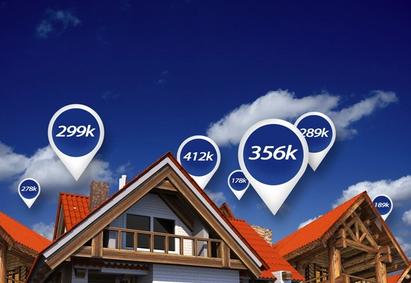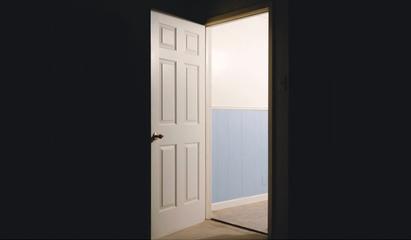How Old Do You Have to Be to Buy A House?
Written by:
Dan Silva
Dan is the Vice President of Marketplace Lending at Own Up. Throughout his career, he has held executive leadership positions in the mortgage and banking industry.
See full bio

Miley Cyrus , Hillary Duff and Nick Jonas and all bought their first house before they were 18.
Kylie Jenner, Daniel Radcliffe and Britney Spears became homeowners at age 18. The purchases made news and was clickbait online. But these celebrities are the exception.
Millennials may make up the largest share of home buyers, but they are not rushing to buy houses. Just one in three Millennials own their own home and most of them are over age 30. So what do those celebrities buyers between 16 and 18 years of age have that most Millennials don’t? The obvious answer is money. But another question is less obvious: Does an 18-year-old or 20-year-old have a compelling reason to need their own house or what is the best age to buy a house?
“Need” and “best” are of course subjective terms. None of the celebrities listed above needed their own house; they wanted one. In most states, you become an adult at 18 years of age, making you able to sign legal documents. Minors, or those under 18 (besides emancipated minors), need an adult to co-sign legal documents. This co-signer must have income, not a lot of debt and be creditworthy.
Once people pass 18, the reality is that age is just a number. Your income, savings, maturity and life situation matter much more. Or put another way, to quote the designer Donna Karan, “Age and size are only numbers. It’s the attitude you bring to clothes that make the difference.” The same goes for buying a house.
Are You Ready? It’s Between You and Your Bank
Millennials reading the tea leaves for signs they are ready to be a homeowner will find that three of the five signs are related to finances. They are having stable employment, being able to afford the down payment and having extra money to maintain a house. The fourth is related to life situation. You need to be ready to stay in one place for a long time. Because of the costs to buy and sell a home, you could lose money if you buy and sell within a few years. The fifth is a transactional indicator: having a good credit score. A good credit score shows lenders you are a low risk for defaulting on loans since you always paid your bills in the past.
Looking at the latest statistics, most young adults aren’t ready for homeownership until their 30s. According to the National Association of Realtors 2019 report, which used 2017 data, Generation Z (those under age 20) made up less than 1 percent of home buyers. Millennials ages 21-28 made up 11 percent and had a median age of 26. Older Millennials—the largest percentage of homebuyers at 26 percent—had a median age of 34. Why the wait? It’s likely because of money. Millennial homebuyers under age 28 had a median income of $71,000 and those between ages 29 and 38 made an average of $101,200.
Only you can decide if you are ready to settle down and maintain a house. Your mortgage lenders will determine if you are financially responsible enough to own one. During the 2007 housing crisis, which led to a recession, close to a million people lost their home to foreclosure in one year. This was costly for both banks and individuals, so lenders now hold borrowers to tighter standards to make sure they can afford the monthly payments. Landlord who can evict a tenant not paying the bills and find another renter; evicting (or foreclosing on) an owner is harder and much more expensive.
Potential buyers undergo a lengthy examination of their finances before a mortgage broker will approve a loan. Lenders assess your financial wellbeing in two primary ways:
- Credit Score: Your credit score is a measure of your credit worthiness. This credit history shows whether you paid your credit cards on time and how well you meet other debt obligations. Before the housing crisis, the median credit score was 692. Afterward, it was over 20 points higher.
- Your debt-to-income ratio (DTI): The DTI is derived by dividing your monthly debt by monthly gross income. The resulting ratio tells lenders how well you manage debt. Lenders look for a ratio under 43%. One thing to note: Borrowers in the gig economy will find the process more difficult.
You need to add these four measures and assess them for yourself:
- Household expenses: This has three elements: Maintenance and repairs generally cost 1% of a home’s value; an emergency fund with three to six months of living expenses; and a savings account for other unspecified needs.
- Down payment: Make sure you have the money for the down payment, separate from maintenance and emergency funds. You do not need a 20 percent down payment to buy a home—though buying one with less will require private mortgage insurance (PMI) or a second loan. This is in addition to the regular mortgage payments and homeowners insurance. Having a 20 percent down payment is conventional, but it is not required.
- Closing costs: Don’t forget that closing costs account for 2% to 5% percent of the purchase price, above and beyond the down payment. For example, a $300,000 house would have closing costs between $6,000 and $15,000. For first time buyers, this sometimes comes as a shock. Just ask “Shark Tank’s” Barbara Corcoran.
- Student loans: It is not impossible to buy a house while paying student loans, but it is harder.
Qualifying to Buy Your First Home
Buying your first home may seem overwhelming, but with the help of a real estate agent, it can go smoothly. It takes a long time to buy a house and can be particularly challenging when you’re a first time homebuyer (Need link- not on website yet). New homes vary in size and cost. They also vary in how much work is needed upfront. Handy people might choose a fixer-upper to save on the down payment and mortgage and personalize it. Less handy people, or busy people, are more likely to look for a move-in ready home, which will likely cost more.
Before visiting a single home or open house, get pre-approved for a home loan so you know the home value you qualify for. Without this preapproval, sellers will not take you seriously, and in a tight market, that could get frustrating quickly. Many realtors and real estate agents won’t even show you homes if you are not pre-approved. Getting preapproved is as simple as a 10-minute phone call to Own Up. A preapproval letter tells you how much house you can afford and informs the house hunting and home purchase process.
Purchasing Your First Home
Once you find your dream house, it’s time to negotiate an offer. This includes everything from the purchase price to contingencies, or the requirements that must be met for the sale to go through. These include a home inspection, appraisal, financial contingency in case a lender refuses to finance a loan, and a title search. The agreement is laid out in a Purchase & Sale Agreement. Your real estate agent will guide you through this process.
The next step, getting a mortgage, is up to you. The most important thing to remember is you have mortgage options. You wouldn’t go to one car dealership and buy a car, would you? This purchase is much bigger, so shop around. Different institutions offer mortgage loans. Understanding your options is key to finding the one that is right for you. There are both fixed-rate mortgages and adjustable-rate mortgages. You can also pay points to lower your interest rates, or get lender credits to lower your closing costs. Many states offer first-time homebuyer programs. Search for programs in your state here.
All mortgages are not alike. Some are conventional loans with a 20 percent down payment; others have down payments as low as 3 percent. People with less income and more debt (including student loan debt) can get a Federal Housing Administration (FHA) loan with interest rates as low as 3.5 percent while veterans can access VA loans with less stringent requirements. Read this to learn the language of mortgages so you know what is being offered.
Once you are ready to shop, make sure you have all the needed documentation. This includes:
- Income verification: pay stubs for the last 30 days, W-2’s for the last two years, and address records for the last two years
- Asset verification: the last two months of bank statements (to prove you have money for the down payment)
What About Plan B
Some buyers go through this whole process and get the keys to their new home. They can move in and take a deep breath until it is time to refinance. Other potential buyers decide home ownership is not for them at this time and choose to either continue renting or move in with family to save money for a future down payment. There is no right option. The key is to be happy with your choice.
You might also decide that you are not ready to buy a house. In that case, consider moving in with family or friends, or cut down on unneeded expenses, to save for a future down payment. This could save you a lot of heartache down the road. A survey of Millennial home buyers found that 63 percent had regrets about buying their home purchase. The hidden costs associated with home ownership, including the ongoing maintenance costs, was their number one frustration. Other regret include choosing the wrong location and getting a house the wrong size. The lesson here is to do your homework and be sure that if you are buying a house, it is the right one for you, now and for at least the near future.
Want to learn more about homeownership? Give up a call. It’s the focus of our business at Own Up. We’d be happy to answer any of your questions.


